Sheep farming is an ancient and important industry in New Zealand. Sheep farming is an agriculturally-important industry that produces quality meat and wool.
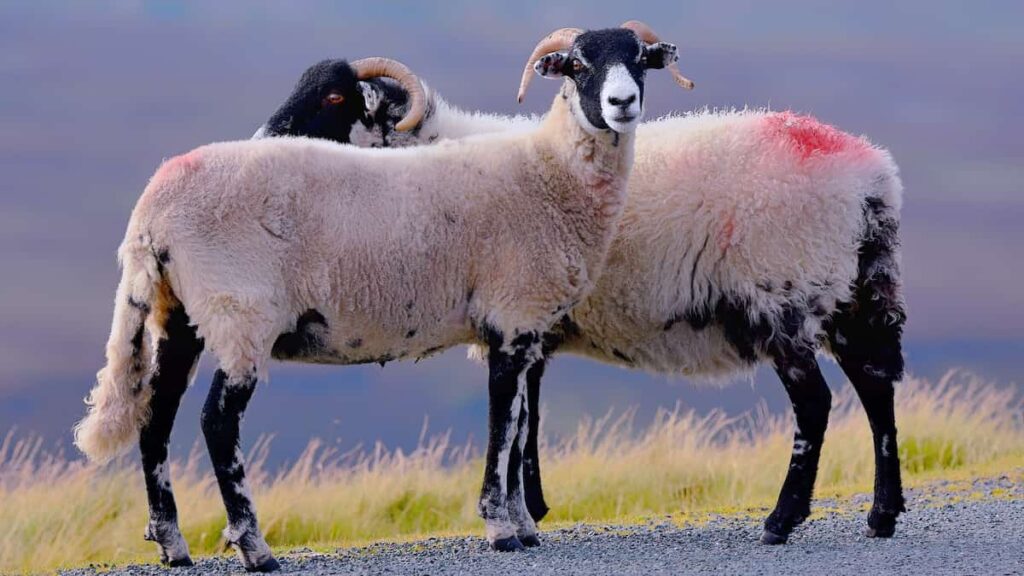
How to start sheep farming in New Zealand
What is sheep farming?
The sheep farming industry in New Zealand is one of the most important agricultural industries in the country. It contributes significantly to the economy, employs many people, and generates significant export income. The industry is also a major provider of food and fiber for the local market.
Is sheep farming profitable in New Zealand?
New Zealand has a long history of sheep farming and is home to some of the world’s finest wool production. There are many different types of sheep farming in New Zealand, including pastoral (raising sheep for their meat), mixed farming (raise both beef and sheep), and intensive farming (raise large numbers of lambs).
Sheep farming is profitable in New Zealand if the right conditions are met. For example, the climate has to be cold enough to protect the fleece from being damaged by sunlight, there has to be sufficient grass for the sheep to graze on, and there needs to be adequate water resources. Additionally, it is important to have a good breeding program in place so that the flock can reproduce successfully.
Sheep farming requirements in New Zealand
New Zealand is one of the world’s top sheep-farming countries due to its abundant land, mild weather, and high rainfall. Shepherds have been raising sheep since before European contact, and today there are over 300 breeds of sheep in New Zealand. To raise sheep successfully in New Zealand, you will need access to good quality pastureland (at least 320 hectares), adequate water supply (at least 400 liters per hectare), and good fertility soils (containing enough organic matter).
You will also need to provide shelter for your flock (e.g., sheds or windbreaks), food and water for them year-round, veterinary care if required, and equipment such as shears, rams, and wagons for moving herds around your property
In case you missed it: Poultry Farming in New Zealand: Breeds, How to Start
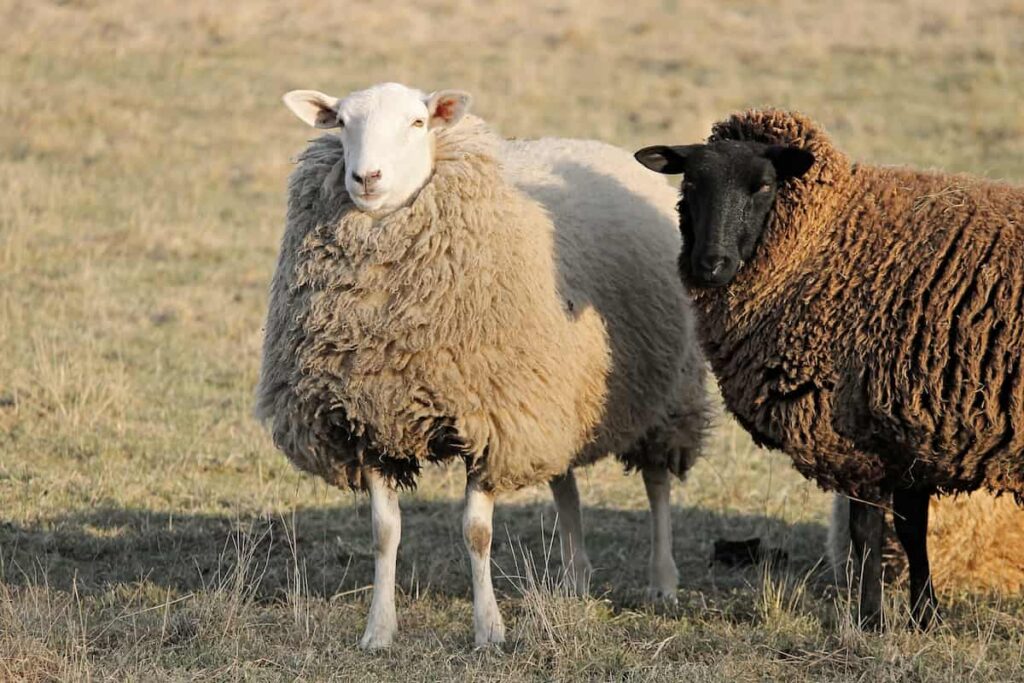
Zero grazing sheep farming in New Zealand
Zero-grazing sheep farming in New Zealand is a new technique that has recently gained popularity. This type of sheep farming allows the animals to forage for food on their own without being fed by humans. The theory behind this approach is that this will result in more food being available for the sheep, resulting in them being more productive and healthier.
Zero-grazing sheep farming in New Zealand does have its challenges. For one, it can be difficult to keep the sheep away from areas where they can access human-provided feed. Additionally, some farmers have reported problems with overgrazing due to the lack of human supervision. However, this type of Sheep Farming is thought to be more sustainable and environmentally friendly than traditional ranching methods, and it looks like it may be here to stay.
Sheep farming for beginners in New Zealand
- There are several ways to get into sheep farming in New Zealand. One option is to take up a share of an existing property. Another option is to purchase your land and start from scratch. Several sheep farming businesses also offer leasing or buying options.
- Once you have chosen the method of getting started, the next step is to find the right property. You will want to decide what type of land you want to farm, whether it’s flat or hilly, and if you wish to lease or buy the land. Once you have made these decisions, it’s time to start looking for properties.
- You can use online resources such as maps and databases to find suitable land. However, be careful when dealing with landowners – always discuss the terms of the agreement before signing anything.
- Once you have found a property, the next step is to prepare it for sheep farming. This involves clearing the land of trees and vegetation, building fences around the property, and constructing pens for your sheep.
- Sheep farming in New Zealand is a great way to get involved in agriculture without investing a lot of money upfront. It’s also a flexible activity – you can switch between producing lambs and wool products.
Tips for sheep farming for beginners in New Zealand
- Get a good selection of your property
- Decide what type of sheep you want to keep: Longwool, Shorn, or polled
- Talk to other farmers in the area and find out what they are doing
- Research the breeds of sheep that are best suited for your region and climate
- Make sure you have access to fresh water, pasture, and hay
- Install fencing to protect your sheep from predators and other animals
- Provide supplementary feed for your sheep during the winter months
- Regularly trim their wool to avoid it becoming matted
- Vaccinate your sheep against diseases such as Foot-and-Mouth Disease (FMD), Rotavirus, and Typhoid fever
- Keep a close eye on your sheep during lambing season to ensure everything goes smoothly.
In case you missed it: Dairy Farming in New Zealand: How to Start, Breeds, A Step-By-Step Guide for Beginners
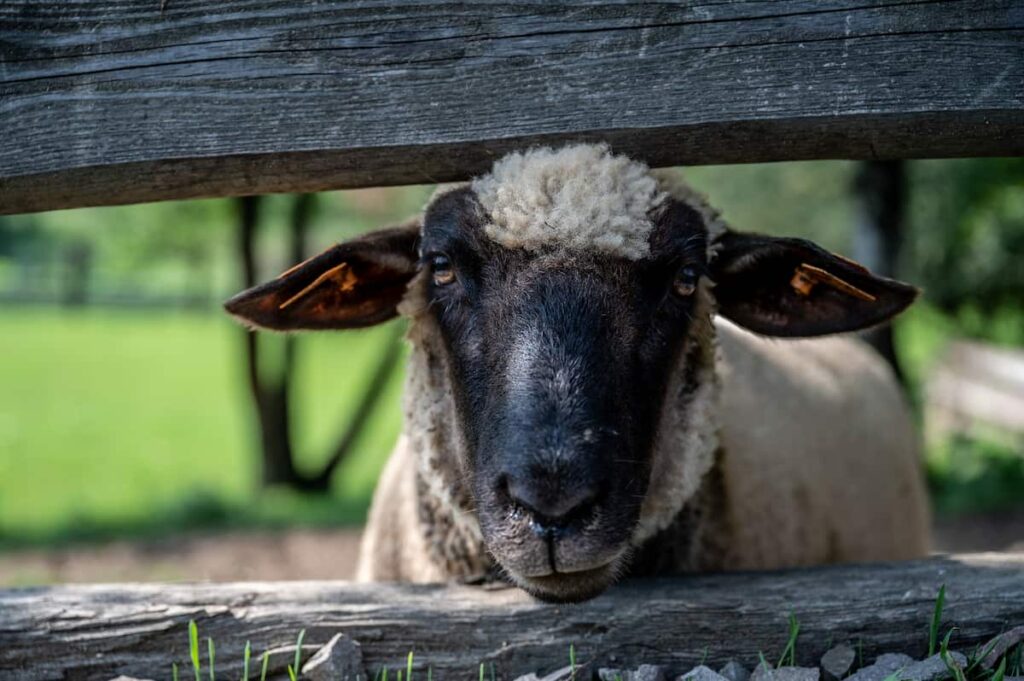
Sheep farming areas in New Zealand
In New Zealand, sheep farming is one of the oldest industries and a very important part of the agricultural sector. The country has a long history of sheep farming, which has resulted in a well-developed sheep industry. There are over 115,000 sheep in New Zealand, and the average flock size is around 2,500 animals. Sheep farming areas in New Zealand are located in the North and South Islands.
In the North Island, the main focus is on Canterbury and Otago provinces, while in the South Island, most farms are located around Nelson and Marlborough provinces. The main crops grown on NZ sheep farms are wool and meat, but some farmers also produce honey, lamb chops, or other meat products.
New Zealand has a long history of sheep farming, and this country is home to the world of best sheep farms. There are currently six regions in New Zealand where sheep are raised: Northland, Waikato, Taranaki, Manawatu-Wanganui, Canterbury, and Otago. Each region has unique attributes that make it perfect for sheep farming, including climate, terrain, and soil type.
Sheep breeds in New Zealand
| Australian Whites NZ | Poll Dorset |
| Awassi | Polwarth |
| Border Leicester | Romney |
| Charollais | Ryeland |
| Corriedale | Shropshire |
| DairyMeade NZ | South Suffolk |
| Dorper | Southern Cross |
| Dorset Horn | Suffolk |
| East Friesian | Texel |
| English Leicester | Valais Blacknose |
| Finnsheep | Zealandia |
| Hampshire | Barnyard Sheep |
| Lincoln | Flock Sheep |
| Merino | Romney Sheep |
| Oxford |
Sheep feeding management in New Zealand
Sheep farming in New Zealand is a relatively new industry, and there is still much to learn about the best practices for sheep feeding management. However, the following are some tips that may help you improve your flock’s health and productivity:
- Control grazing pressure on your pastures by fencing off areas that are not in use.
- Provide supplemental feed at specific times of the day based on weather conditions and pasture occupancy.
- Rotate the types of feed given to your sheep to keep their diets varied and interesting. This will help keep them healthy and curb boredom.
- Monitor flock health regularly with fecal samples, blood tests, and physical exams to detect early signs of disease or injury.
In case you missed it: How to Start Organic Farming in New Zealand: A Step-By-Step Production Guide for Beginners
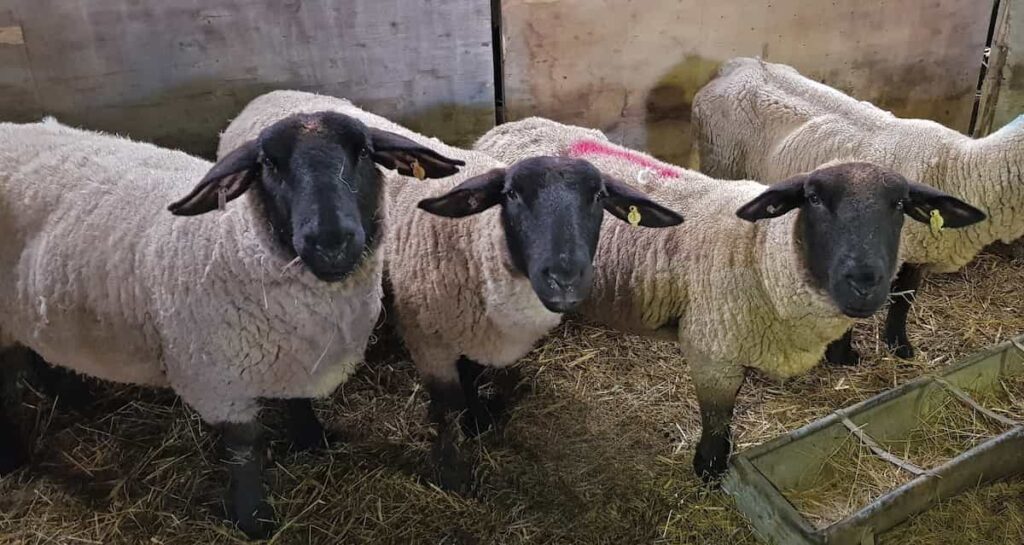
Sheep farming types in New Zealand
There are many sheep farming businesses in New Zealand. The main types of sheep farming are intensive, extensive, and mixed. Intensive sheep farming is where the farmer has many sheep and is fed a high-quality diet. Extensive sheep farming is where the farmer has a smaller number of lambs, and they are allowed to graze on native grasses and bushes.
Finally, mixed farming is where the farmer has both intensive and extensive sheep farms. There are many different types of sheep raised in New Zealand, from the meat and wool-producing ewes to the dual-purpose breeds that provide meat and fiber. Below are the most common types of sheep in New Zealand:
- Fine-wool Sheep: Fine-wool sheep are the most popular type in New Zealand and are often used for their wool. They usually have a short coat of wool that is crimped, which makes them very soft and luxurious.
- Meat Sheep: Meat sheep are used for their meat, which is used primarily for lamb but can also be used for mutton. They usually have a longer coat of hair, either black or brown, and tend to weigh more than fine-wool sheep.
- Dual-Purpose Sheep: Dual-purpose sheep can provide both meat and fiber. They usually have a long coat of hair, mostly white with some black strands mixed in, and they produce a lot of wool.
How to raise sheep in New Zealand?
- Raising sheep is a popular way to produce meat, wool, and milk in New Zealand. Sheep are easy to care for and relatively disease-free. They require minimal feed and can be grazed or sheared.
- Sheep farming in New Zealand is mostly confined to the high country of the South Island. You’ll need an agricultural visa if you intend to raise sheep commercially. There’s no need for a permit if you’re raising sheep for your use.
- The best time to raise sheep is from early autumn through winter, when they eat their winter hay supply. After that, you can begin feeding them clover in the late summer or early fall, but don’t overdo it; too much clover can make them sick.
- To keep your sheep healthy, provide plenty of fresh water and good pasture (a mix of grass and woodchips). If you have more than a few lambs, you may want to build a pen, so they don’t get scattered during lambing season.
In case you missed it: Fish Farming in New Zealand: How to Start, Breeds, Check How this Guide Helps Beginners
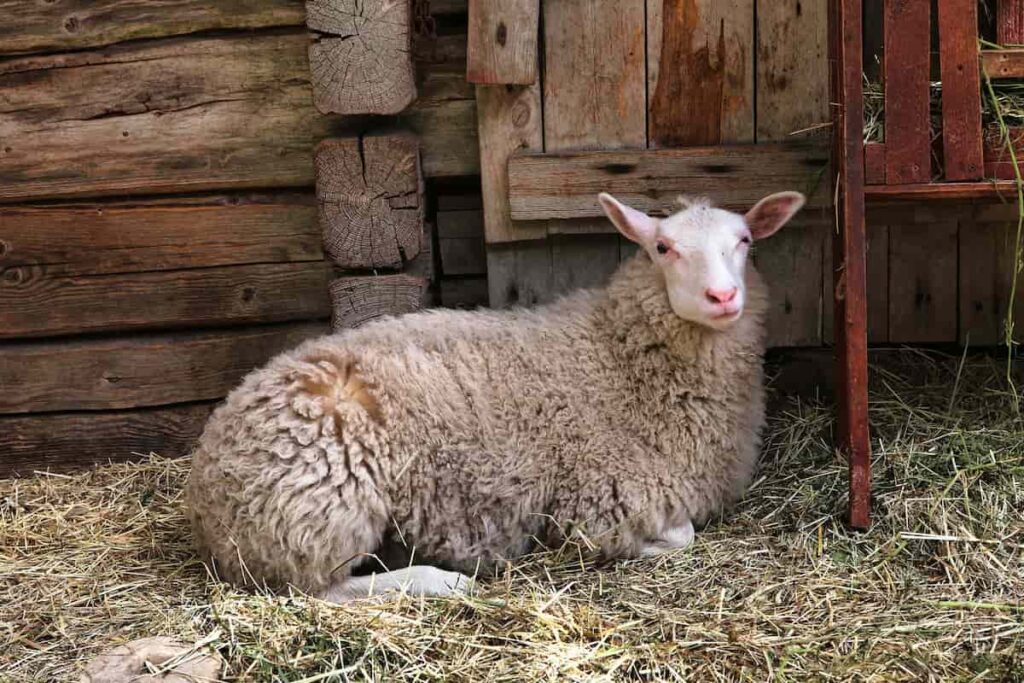
Sheep marketing in New Zealand
- Sheep farming in New Zealand is profitable, providing farmers with high-quality meat and wool products. Sheep are the most common animal kept on farms in New Zealand, and they are raised for their meat, fleece, and milk.
- New Zealand is ideally suited to sheep farming because of its temperate climate and abundant resources. Over one million sheep live on New Zealand farms, and the industry is growing rapidly.
- Sheep farming is lucrative, providing farmers with high-quality meat and wool products. The sheep farming industry in New Zealand is a big business, with over 600,000 sheep grazing the country’s hills and plains. Most of these sheep are raised for their meat, but there is also a growing market for wool products.
- Most of New Zealand’s sheep are kept on large commercial farms. These operations range from small family businesses focusing primarily on raising lamb and wool to large commercial companies producing meat and fiber products.
Sheep farming business plan in New Zealand
- Calculate your costs of running a sheep farm in New Zealand
- Research the sheep farming market in New Zealand and develop a business plan that takes into account your target market and pricing strategy
- Build a strong team of experienced personnel to manage and operate your farm
- Secure land, build infrastructure, and get started with flock selection
- Execute your business plan and grow your sheep farm by focusing on quality production and customer satisfaction
- Maintain high standards of animal welfare and environmental management to remain competitive
Are sheep profitable on a small farm?
- The short answer is that sheep farming in New Zealand can be profitable on a small scale, but it takes a lot of hard work and dedication. Nevertheless, sheep are a good choice for small-scale farmers because they are versatile animals that can be mainly used for meat, wool, and milk production.
- To start a small-scale sheep farming operation in New Zealand, you must obtain government approval. Once you have approval, you must build or purchase a pen for your sheep. You will also need to buy feed for your flock and ensure they have water access.
- Sheep farming in New Zealand is very profitable, and there are many ways to increase your income. For example, you can sell the wool that your sheep produce, or you can sell the meat.
Large-scale sheep farming in New Zealand
- Large-scale sheep farming in New Zealand is a popular and profitable agricultural industry. There are currently around 100,000 sheep on farms in New Zealand, and the sector is growing rapidly. Sheep farming is a good option for farmers who want to raise animals for meat, wool, or milk, and it has a low environmental impact.
- Sheep are raised on large farms where they can roam free. They are fed hay, vegetables, and grain and sheared once a year. Shearing produces wool that can be sold commercially. In addition to wool, lambs are slaughtered for their meat.
In case you missed it: Greenhouse Farming in New Zealand: How to Start, Crops, and Benefits
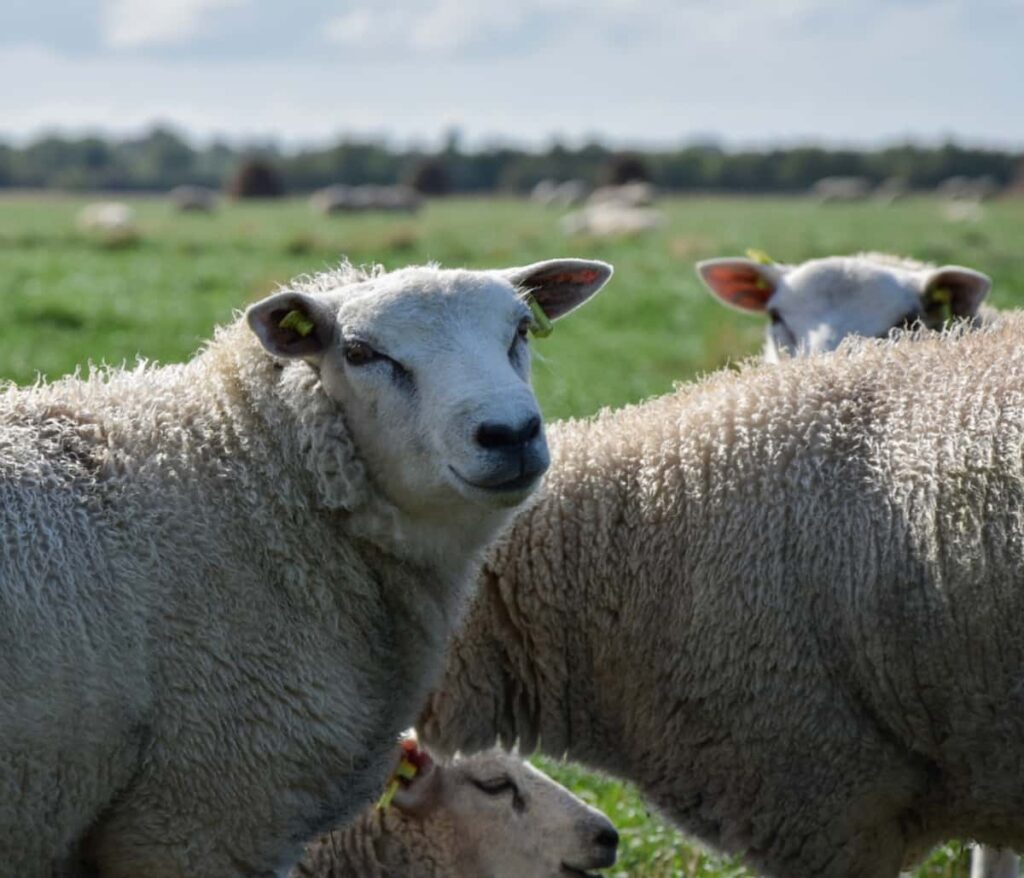
Sheep farming profits in New Zealand
The sheep farming industry in New Zealand generates annual profits of $1.3 billion. The primary reason for this impressive figure is the country’s high wool production, valued at over $1 billion annually. Additionally, the industry employs many people, with a combined workforce estimate of almost 26,000 individuals.
Sheep farming loans in New Zealand
- Sheep farming in New Zealand has been around for over 150 years and is a popular form of agriculture. There are several ways to get loans for sheep farming in New Zealand, including government loans, family loan schemes, and private sector loans.
- Government loans are available for various purposes, including purchasing or building sheep farming infrastructure. Family loan schemes provide funding to farmers jointly involved in the operation of the farm. Private sector loans are available from banks, finance companies, and other financial institutions. Loans can be used to purchase sheep and build Sheep husbandry facilities.
- Sheep farming in New Zealand is profitable, provided the correct investments are made. Farmers with experience and access to good financial resources can enjoy high investment returns.
Sheep farming problems in New Zealand
Sheep farming in New Zealand has been around for centuries. However, this country has had several problems with sheep farming over the last few years. Some of the main problems include the following:
- Overgrazing: Sheep grazing on unenclosed pasture can quickly overgraze an area and cause soil erosion and desertification.
- Leeds disease is a common disease affecting sheep, particularly young lambs. It causes death by pneumonia or suffocation due to fluid accumulation in the lungs.
- Many people believe that farmers are responsible for all of the sheep farming problems in New Zealand, when in fact, it’s simply a matter of too many sheep on too little land.
Challenges faced by New Zealand sheep farmers
The main challenges NZ sheep farmers face include weather conditions (such as extreme weather events), pests and diseases (such as bovine tuberculosis), and competition from other livestock producers. However, these challenges have led to innovation within the industry, such as developing new breeds of sheep that can cope with specific environmental conditions or combating pests and diseases.
One challenge for sheep farmers in New Zealand is that the country has a temperate climate, so there are generally not as many opportunities to feed their animal’s hay as in warmer climates. They must therefore find other ways to provide their sheep with enough nutrients and food. Another challenge for new sheep farmers is that they need to learn how to deal with diseases and parasites. In addition, they will need to learn about soil types and how best to farm them to get the most out of them.
Conclusion
New Zealand is the world’s leading lamb and wool producer. The country also has many dairy cows, which produce milk for cheese production and other products. However, sheep are still an important part of New Zealand’s agricultural sector, and there are now about two million sheep in the country. Overall, New Zealand is one of the most profitable places to farm sheep.
- Types of Pesticides Used in Agriculture: A Beginner’s Guide
- Economical Aquaculture: A Guide to Low-Budget Fish Farming
- 15 Common Planting Errors That Can Doom Your Fruit Trees
- How to Make Houseplants Bushy: Effective Tips and Ideas
- Innovative Strategies for Boosting Coconut Pollination and Yield
- Pollination Strategies for Maximum Pumpkin Yield
- The Complete Guide to Chicken Fattening: Strategies for Maximum Growth
- Natural Solutions for Tulip Problems: 100% Effective Remedies for Leaf and Bulb-Related Issues
- Revolutionizing Citrus Preservation: Towards a Healthier, Greener Future
- Natural Solutions for Peony Leaf and Flower Problems: 100% Effective Remedies
- Maximizing Profits with Avocado Contract Farming in India: A Comprehensive Guide
- Natural Solutions for Hydrangea Problems: 100% Effective Remedies for Leaf and Flowers
- The Ultimate Guide to Choosing the Perfect Foliage Friend: Bringing Life Indoors
- From Sunlight to Sustainability: 15 Ways to Use Solar Technology in Agriculture
- The Ultimate Guide to Dong Tao Chicken: Exploring from History to Raising
- The Eco-Friendly Makeover: How to Convert Your Unused Swimming Pool into a Fish Pond
- Mastering the Art of Delaware Chicken Farming: Essentials for Healthy Backyard Flocks
- 20 Best Homemade Fertilizers for Money Plant: DIY Recipes and Application Methods
- How to Craft a Comprehensive Free-Range Chicken Farming Business Plan
- Brighten Your Flock: Raising Easter Egger Chickens for Beauty and Bounty
- How to Optimize Your Poultry Egg Farm Business Plan with These Strategies
- Subsidy for Spirulina Cultivation: How Indian Government Schemes Encouraging Spirulina Farmers
- Ultimate Guide to Raising Dominique Chickens: Breeding, Feeding, Egg-Production, and Care
- Mastering the Art of Raising Jersey Giant Chickens: Care, Feeding, and More
- Ultimate Guide to Raising Legbar Chickens: Breeding, Farming Practices, Diet, Egg-Production
- How to Raise Welsummer Chickens: A Comprehensive Guide for Beginners
- How to Protect Indoor Plants in Winter: A Comprehensive Guide
- Ultimate Guide to Grow Bag Gardening: Tips, Tricks, and Planting Ideas for Urban Gardeners
- Guide to Lotus Cultivation: How to Propagate, Plant, Grow, Care, Cost, and Profit
- Agriculture Drone Subsidy Scheme: Government Kisan Subsidy, License, and How to Apply Online
- Ultimate Guide to Raising Araucana Chickens: Breed Profile, Farming Economics, Diet, and Care
- Bringing Hydroponics to Classroom: Importance, Benefits of Learning for School Students
- Ultimate Guide to Raising Polish Chickens: Breed Profile, Farming Economics, Diet, and Care
- Ultimate Guide to Raising Australorp Chickens: Profile, Farming Economics, Egg Production, Diet, and Care
- Silkie Chicken Farming: Raising Practices, Varieties, Egg Production, Diet, and Care
- Sussex Chicken Farming: Raising Practices, Varieties, Egg Production, Diet and Care